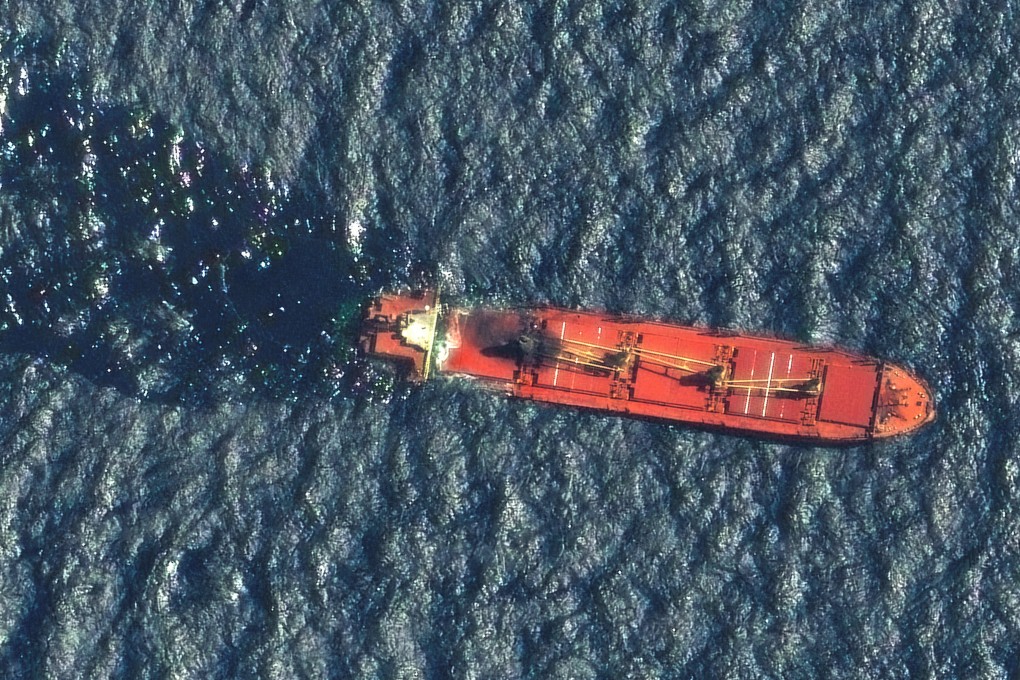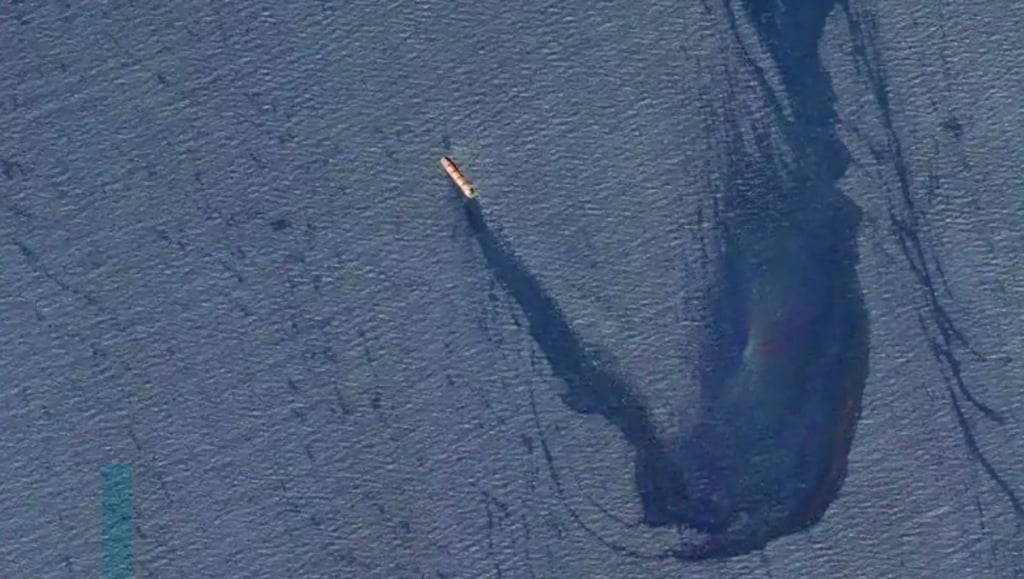Advertisement
Red Sea faces ‘environmental disaster’ as cargo ship sunk by Houthis spills oil, leaks fertiliser
- Officials on Saturday said the M/V Rubymar, reportedly carrying 22,000 metric tons of toxic fertiliser, sunk after taking on water in the February 18 attack
- Fishing, coral reefs and desalination plants are at risk after fertiliser and oil spilled into the sea by the sinking of the cargo ship attacked by Houthi rebels
Reading Time:3 minutes
Why you can trust SCMP
3

A vibrant fishing industry, some of the world’s largest coral reefs, desalination plants supplying millions with drinking water. They’re all at risk from large amounts of fertiliser and oil spilled into the Red Sea by the sinking of a cargo ship attacked by Yemen’s Houthi rebels.
Officials on Saturday said the M/V Rubymar, a Belize-flagged vessel reportedly carrying 22,000 metric tons of toxic fertiliser, sunk after taking on water in the February 18 attack.
Even before plunging to the ocean’s depths, the vessel had been leaking heavy fuel that triggered a 30km (18-mile) oil slick through the waterway, which is critical for cargo and energy shipments heading to Europe.
Since November, the Houthi rebels have repeatedly targeted ships in the Red Sea over Israel’s offensive in Gaza. They have frequently targeted vessels with tenuous or no clear links to Israel.
US Central Command, which oversees the Middle East, has warned in recent days of an “environmental disaster” in the making. That has less to do with the size of the vessel’s hazardous cargo than the unique natural features and usage of the Red Sea, said Ian Ralby, founder of maritime security firm I.R. Consilium.
Aggravating concerns over the Rubymar’s sinking is the Red Sea’s unique circular water patterns, which operate essentially as a giant lagoon, with water moving northward, toward the Suez Canal in Egypt, during winter and outward to the Gulf of Aden in summer.

“What spills in the Red Sea, stays in the Red Sea,” said Ralby. “There are many ways it can be harmed.”
Advertisement